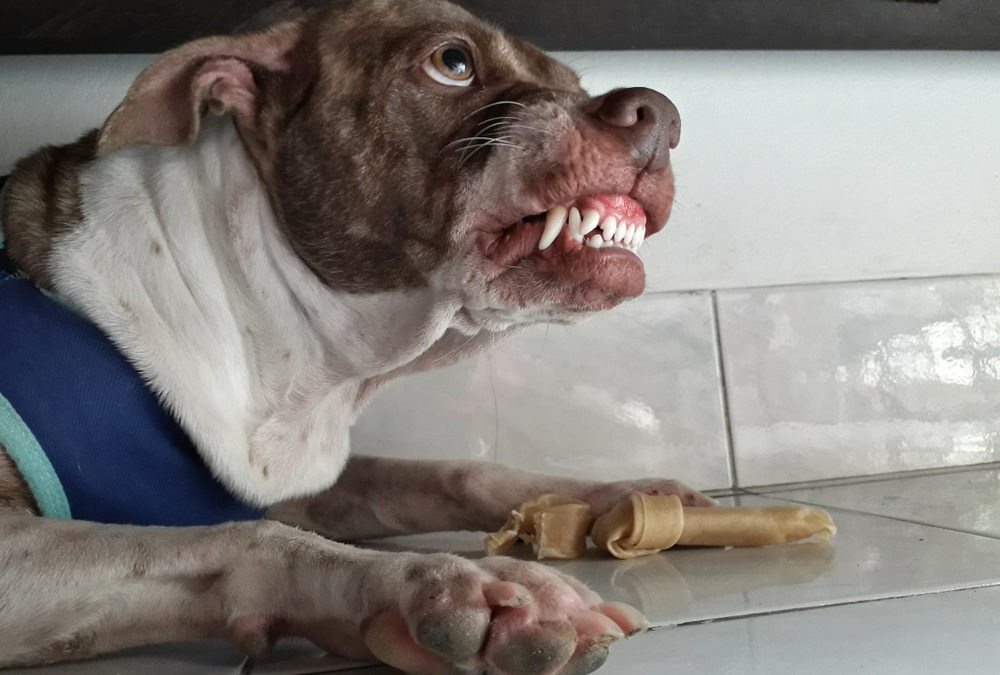Although domestication has changed many things about dogs and their behaviors, there are certain instincts that tend to come out that might not make sense to some pet owners. Resource guarding, or “possessive aggression,” is an innate behavior that can show up in dogs of any age, size, or breed. Here’s what you need to know about resource guarding in dogs and how to keep it from becoming a dangerous behavior:
What Is Resource Guarding
Resource guarding occurs when a dog suddenly becomes possessive over certain food, toys, or even humans in some instances. When resource guarding, the dog will often growl, bark, lunge, or even bite. Early training can help prevent it from worsening. Without proper attention, this behavior can become a dangerous problem for people and other animals in your house.
Resource guarding can be instinctual, genetic, or a result of the need to fight over food early in life. It could also be an indicator of a bigger health issue, which is why it is important to talk to your veterinarian about this behavior as soon as you notice it.
Spotting the Behavior
Before you can work to correct resource guarding, you have to be sure your dog is demonstrating this behavior. Some of the most common signs of resource guarding are:
- Adopting a rigid stance
- Lowering the head
- Narrowing eyes
- Physically standing between the object and a person
- Running with the object even when instructed to drop it
- Eating or chewing especially fast
- Showing teeth
What to Do About Resource Guarding
Although it might be scary in the moment, a little bit of training can help you break your dog of this behavior. The best place to start is to take your dog to a behavior specialist. They can work with your dog to determine the extent of the resource guarding and how much work your dog might need to break free from it. You can help this with some work at home, and the behaviorist should have suggestions based on your dog’s specific condition.
What Not to Do About Resource Guarding
The wrong reaction can actually make resource guarding worse. If you are trying to teach your dog not to exhibit this behavior, be sure to avoid:
- Raising your voice
- Punishing
- Playing with the dog’s food
- Leaving the items out that your dog wants to guard
Doing any of the above could have an adverse effect and actually make the resource guarding worse. If you are having trouble modifying the behavior, ask your behaviorist for some advice on what to do to complement their efforts. Often dogs will show behaviors like this when they are feeling anxiety or fear from a certain trigger, and the behaviorist can figure out how to fix the problem at the source.
At Union Lake Pet Services, our pet behavior experts can work with your pet to counter condition them away from their instinct to resource guard. We always treat you and your pet like family, and we will do whatever we can to get you the results you desire. To learn more about our services or to schedule a behavior appointment, please call (248) 363-6262.

